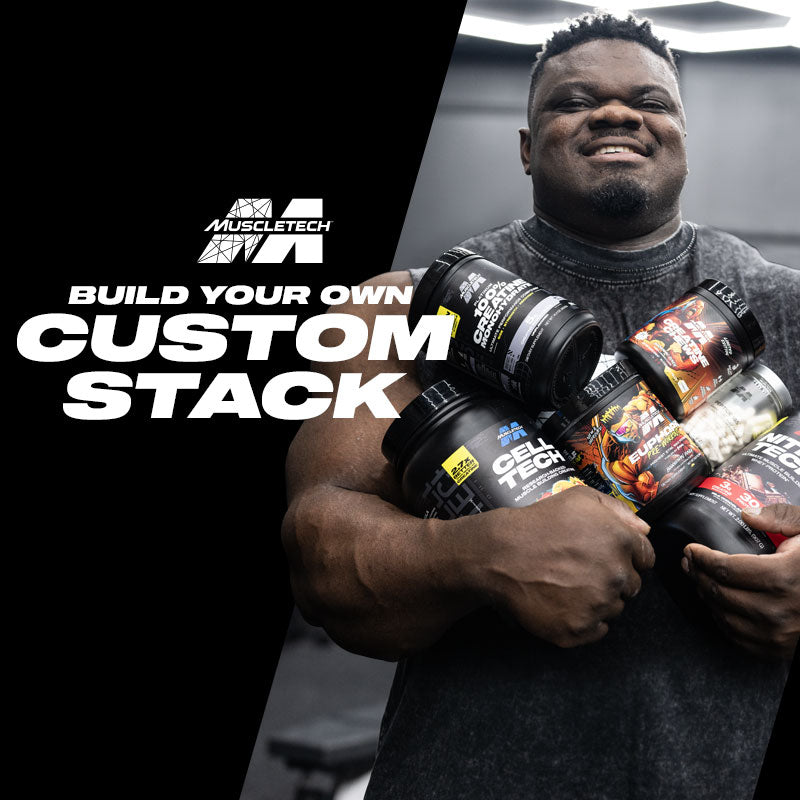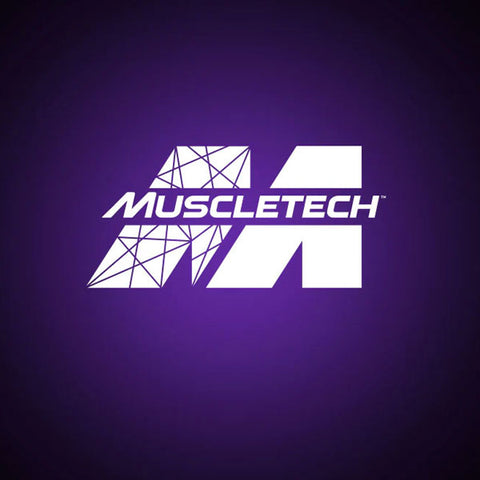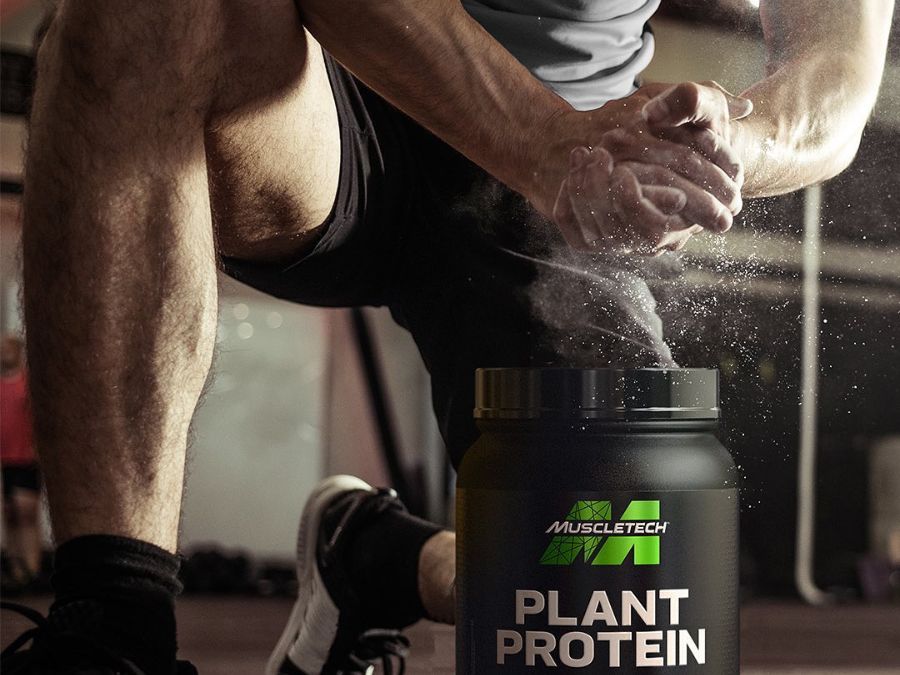In the world of bodybuilding and fitness, creatine has long been a subject of interest - particularly its impact on body weight. If you've hesitated to incorporate creatine into your regimen due to concerns about weight gain, this article is your go-to guide.
We delve deep into the science of creatine, its physiological roles, and how it can be a game-changer for anyone committed to bodybuilding or a fitness-centric lifestyle.
Table of content
Understanding Creatine: More Than Just a Supplement
Firstly, let's address the elephant in the room: What exactly is creatine? Far from being a mere workout supplement, creatine is a naturally occurring compound found in muscle cells. It plays a critical role in the production of adenosine triphosphate (ATP), the cellular currency of energy. This is particularly crucial during high-intensity activities like weightlifting or sprinting, where ATP is consumed rapidly.
Why Athletes and Bodybuilders Trust Creatine
The benefits of creatine extend beyond a short-term energy boost. Over the long haul, consistent creatine supplementation can significantly enhance muscle growth and performance. This makes it a staple in the fitness and bodybuilding community, and it's not a recent trend - creatine has been rigorously researched and used for decades.
Also Read: How Much Water Should I Drink While Taking Creatine?
Creatine: Not Just in Powder Form
You should know that creatine isn't solely available as a supplement. It’s also abundant in foods like red meat. When it is consumed, creatine facilitates more intense workouts, which enables you to lift heavier and perform better. This is particularly beneficial for those aiming to gain muscle mass.
The Science of Creatine and Weight Gain
Contrary to popular myths, creatine doesn't lead to fat gain or make you "puffy." In fact, its primary effects on weight are two-fold: increased muscle mass and temporary water retention in muscle cells.
While some individuals may experience slight weight gain due to water retention, this is temporary and should not be confused with fat or muscle gain. However, creatine can help you build more muscle in the long term by enabling you to work out harder and more intensely. In that way, it can help you gain muscle mass (and therefore weight).
Creatine Forms and Their Effects
It's important to differentiate between Creatine Monohydrate and Creatine HCI, as they have different solubility and absorption rates, which can affect the level of water retention and, consequently, weight gain.
1. Creatine Monohydrate
Creatine Monohydrate is the most researched and widely used form of creatine. It has a well-established safety profile and is effective in increasing muscle creatine levels.
There is some misinformation about this creatine as people say that one of the side effects often associated with Creatine Monohydrate is water retention. This leads to a temporary increase in body weight. This is because Creatine Monohydrate pulls water into your muscle cells, which increases cell volume and initiates processes that lead to muscle growth.
However, since water retention is temporary, this should not seen as a big con.
Also Read: Creatine for Beginners
2. Creatine HCI
Creatine HCI is a newer form that claims to have better solubility and absorption rates compared to Creatine Monohydrate. Due to its higher solubility, it is often suggested that Creatine HCI may cause less water retention, and therefore, less weight gain. However, be aware that research on Creatine HCI is less extensive, and more studies are needed to fully confirm these claims.
Benefits of Creatine for Amateur Bodybuilders
If you're under the impression that creatine's sole benefit is accelerating muscle growth, prepare to have your horizons broadened. Creatine offers a plethora of advantages, particularly for those new to bodybuilding. These benefits extend beyond mere muscle hypertrophy, encompassing aspects like enhanced performance and quicker recovery.
Performance Enhancement: Backed by Science
One of the primary advantages of creatine is its ability to boost performance during high-intensity, short-duration activities.
A comprehensive narrative review titled "Use of Creatine for Muscle Hypertrophy in Resistance Training Practitioners" delves into this. The researchers concluded that creatine supplementation significantly improves the body's capacity for high-intensity exercises, which are crucial for muscle growth. Read the full review here.
Beyond Muscle Growth: Recovery and Fatigue
But let's not pigeonhole creatine as a one-trick pony. It also plays a vital role in muscle recovery by increasing the ATP levels in muscle cells. This heightened energy availability reduces muscle fatigue, thereby shortening your recovery periods. The result? You can train more frequently and with greater intensity, accelerating your muscle growth rate.
The Synergy of Creatine and Protein
It's worth mentioning that creatine's benefits are amplified when combined with protein supplementation. This synergistic effect enhances muscle protein synthesis, leading to more effective muscle growth and recovery. This is particularly relevant for bodybuilders aiming for "Superior Science. Superior Results," as it reflects a nuanced understanding of sports nutrition.
How to Use Creatine for Weight Gain?
Using creatine effectively for weight gain involves more than just taking a supplement. It requires a strategic approach that includes proper dosage, timing, and integration with your overall diet and exercise routine. Here's a guide on how to maximize the benefits of creatine for weight gain:
So, let's say you've decided that you want to use creatine to gain some weight and muscle. This will involve more than just taking the supplement and calling it a day. You will actually need a strategic approach. Important factors will be proper dosage, timing, and integration of the supplement with your overall diet as well as your exercise routine. So, let us explain how these factors come into play and how you can get the most out of your creatine supplementation.
- Dosage
The right dosage of creatine is different for every single individual. It depends on a variety of factors. This includes your body weight, your fitness goals, and, honestly, your individual tolerance as well.
A commonly used approach, which is also recommended by a lot of fitness professionals, is to get started with a so-called 'loading phase'. In this phase, you take 20g of creatine per day for about 5 to 7 days and you split these into four 5g servings throughout the day. The benefit of taking this high dosage right at the beginning is that it helps to supply your muscle cells with all the creatine that they need to really give you a push.
Then, after this loading phase, you can reduce the dosage to what we'll call a 'maintenance phase'. In that phase, you will take three to five grams per day because that should be sufficient to maintain the high creatine levels in your muscles after you've already supplied them with enough creatine. Not everyone needs to go through a loading phase. Some people prefer to start with the maintenance dose right away. You can also do that if you're more comfortable, but it might take longer to see results.
- The Right Timing
Timing is crucial when it comes to creatine supplementation. Post-workout is often recommended due to increased blood flow and insulin sensitivity, facilitating rapid creatine uptake into muscle cells. However, some studies suggest that pre-workout supplementation can also be effective in enhancing performance and muscle gains.
- Combine it With a High Protein Diet
Combining creatine with a high-protein diet can create a synergistic effect. It enhances both muscle growth and recovery. You should consume at least 1g of protein per pound of body weight every day. Try to vary your protein sources, including lean meats, dairy products, and eggs. Also don't forget plant-based proteins, for example, beans and lentils.
Taking protein supplements is a good way to get that essential dose of protein easily. You can opt for plant-based protein if you wish to.
Also Read: Protein on a Budget
Due to creatine's osmotic properties, it draws water into muscle cells, potentially leading to dehydration if not managed properly. Try to drink at least 8 to 10 glasses of water per day. If you are exercising or if it's a super-hot summer day, you want to drink even more. Your body will really need enough water to function properly and to support muscle growth and recovery. You can also use electrolyte water if you like.
- Consistency is Key
This pretty much goes for every supplement that you're taking. But yes, creatine is most effective when taken consistently. That means you should even take it on rest days and don't slack just because you're not working out. If your creatine muscle levels are consistently high, that will support your ongoing muscle growth and recovery.
If you follow all these guidelines, you will get the most out of your creatine supplementation and you will definitely be able to grow your muscles. Any weight gain you experience will predominantly be from increased muscle mass – either from the muscle that you actually gain while taking creatine or from the water that gets attracted to the muscles and therefore makes them appear larger and weigh more.
Shop for Protein Powder with Creatine
Wrapping Up: Creatine and Weight Gain
Creatine is more than just a popular supplement; it's a scientifically backed ergogenic aid that can significantly improve your performance in high-intensity workouts, thereby facilitating muscle growth. Contrary to some misconceptions, creatine does not lead to fat gain but can cause temporary weight fluctuations due to water retention in muscle cells.
Remember These Key Points:
- Creatine is proven to enhance cellular energy production during high-intensity activities, which can lead to more effective muscle hypertrophy.
- It's crucial to distinguish between weight gain from water retention and actual muscle growth when evaluating the effects of creatine.
- Optimizing creatine's benefits involves a multi-faceted approach that includes correct dosage, timing, and synergy with your broader nutritional and exercise regimen.
- Individual responses to creatine can vary. Therefore, it's essential to monitor your body's reactions and adjust your supplementation strategy accordingly.
With a well-planned strategy and scientific understanding, creatine can be a potent tool in your muscle-building arsenal. So, keep pushing your limits and let the science of creatine guide you in achieving your bodybuilding objectives.
Further Reading and Products
If you are interested in learning more about creatine and its benefits for bodybuilding, we recommend checking out the following products and resources:
Platinum 100% Creatine: This pure creatine formula delivers a clinically tested dose of creatine monohydrate (the most researched form of creatine available). It delivers the muscle size, strength, and performance you expect from a creatine product. It is made without any added ingredients, fillers, or flavors.
Platinum 100% Creatine Capsules: These capsules provide a convenient and ready-to-go source of creatine. This supplement can help you meet your muscle building and performance goals.
Read Other Creatine Related Blogs:





![Best Creatine for Women [Top 5 Products]](http://www.muscletech.com/cdn/shop/articles/creatine-bianca_900x.jpg?v=1739567469)


